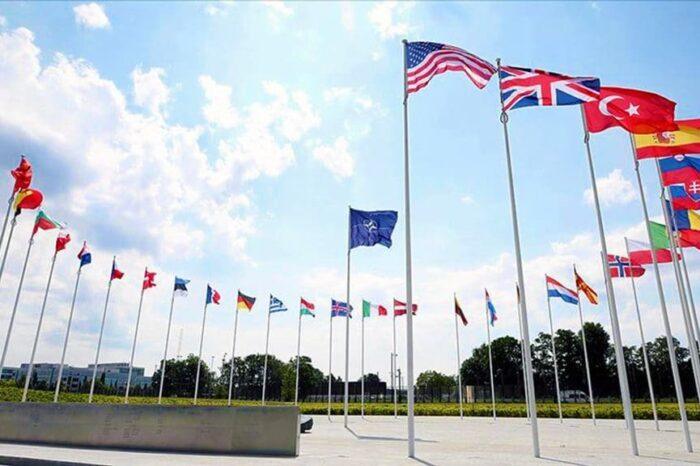Pressure Mounts as Turkey Approaches Deadline for Visa Liberalization
The issue of visa liberalization has gained considerable attention in the past month as Turkey approaches the deadline set in the 2015 EU-Turkey Migration Agreement for Turkey to implement 72 legislative benchmarks. The European Commission is scheduled to present its decision regarding the lifting of visa restrictions along with its third visa liberalization progress report on May 4. Although visa liberalization has been on the table since December 2013, the process lacked momentum until the emergence of the recent refugee crisis and subsequent EU-Turkey Joint Action Plan, which was enacted on November 29, 2015. Under this plan, the EU and Turkey established a comprehensive, though in some ways controversial, mechanism for resettling irregular Syrian migrants from Europe to Turkey, compensating Turkey for the massive financial burden of the refugee crisis, and establishing a legal mechanism for refugees to gain entry to Europe. The European Commission’s decision on May 4 will be critical in determining the visa requirements for Turkish citizens, the livelihood of the Joint Action Plan, and the trajectory of Turkey-EU relations.
As part of the Joint Action Plan, the EU agreed to revisit the topic of visa liberalization for Turkey. As long as Turkey fulfilled the 72 conditions set in the initial dialogue by the end of April 2016, the EU promised to lift the visa requirements for Turkish citizens by the end of June 2016, allowing Turks visa-free travel within Schengen member countries for 90 days. With the deadline fast approaching, there have been many contradictory reports as to how many conditions Turkey has met. Turkish sources have reported that as many as 61 criteria have been fulfilled, while numbers coming out of the EU estimate as few as 19.
Uncertainty over Turkey’s ability to enact the necessary legislation by May 4 prompted leaders from both the EU and Turkey to issue statements that have made the situation more tense. EU officials in recent weeks have reiterated that they will make no concessions regarding the 72 criteria and they will reject visa liberalization if all criteria are not met. European Commission President Jean-Claude Juncker emphasized, “Visa liberalisation is a matter of criteria. The criteria will not be watered down in the case of Turkey.” Turkish Prime Minister Ahmet Davutoglu attempted to quell fears that Turkey would not reach the deadline, stating that most of the criteria had already been met and that the remaining criteria would be enacted by May. Turkey’s EU Minister Volkan Bozkir also offered reassurance that Turkey would meet the requirements by Monday, May 2. But along with statements of reassurance also came stronger remarks from Turkey, warning Brussels that Turkey would not uphold the migrant readmission agreement if the EU did not hold true to its visa liberalization commitments.
While this rhetoric is certainly worth paying attention to, it is also important to consider Turkey’s incentives for maintaining the migration deal. Though momentum for Turkey’s EU membership has been stagnant in recent years, Turkish leaders have made clear their dedication to attaining EU membership. Speaking at the High-Level EU-Turkey Economic Dialogue meeting in Istanbul on April 25, Turkey’s Deputy Prime Minister Mehmet Simsek was quoted as saying, “The full membership process to the EU has been the most important strategic target of Turkey for a long time and will be in the future. Our aim is to achieve full EU membership.” Simsek explained that Turkey is currently in the midst of a “comprehensive reform process” that is strongly tied to the EU membership process. He also added that Turkey intends to expand its customs union with the EU, which has the potential to increase EU-Turkey trade volume to $300 billion. Separately, Simsek discussed Turkey’s desire to be included in the EU-US Transatlantic Trade and Investment Partnership (TTIP) at the Turkey-EU high-level economic dialogue meetings held in Ankara this week. A spokesperson from the Prime Minister’s office also addressed the topic of EU membership, stating Turkey’s desire for the opening of new chapters in the accession process.
Considering how prolonged the road to visa-free access has been, new reports of a potential snap-back mechanism for EU states indicate hesitancy amongst many member states about allowing Turks open access to the EU. However, if visa liberalization is implemented successfully, it could help calm fears among EU members that Turks intend to flock en masse permanently to the region. The migration deal, which has already resulted in a substantial decrease in irregular migration from Turkey to Europe, would remain in effect, paving the way for further cooperation and confidence-building between Turkey and the EU. This cooperation could set the stage for the opening of new chapters in Turkey’s EU accession process.
However, if visa liberalization is not granted and Turkey does in fact cancel the migration deal, the consequences may be dire. Turkey-EU relations would suffer significantly, as mutual trust between the nations would crumble and the EU would be forced to deal with the refugee crisis on its own. Moreover, the refugee crisis would likely intensify dramatically, as renewed hope for a life in Europe without being sent back to Turkey would incentivize refugees to resume the perilous journey by boat across the Aegean Sea to Greece.























